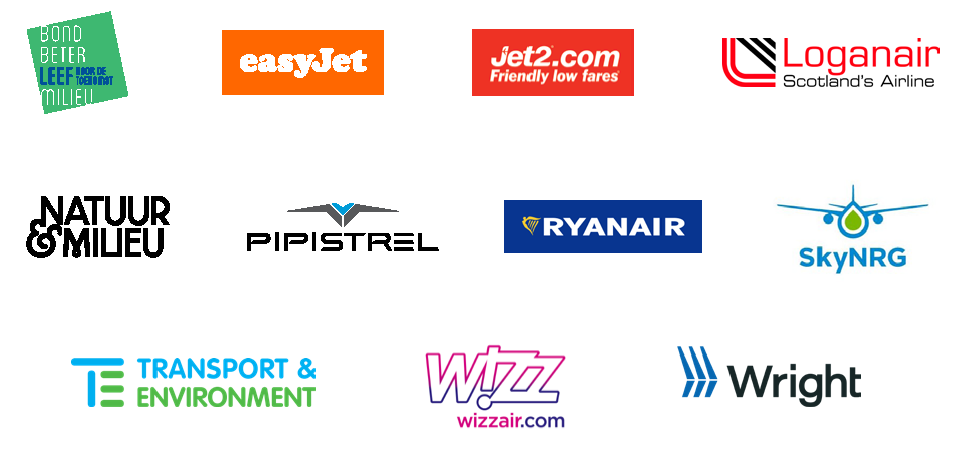
Interested in this kind of news?
Receive them directly in your inbox. Delivered once a week.
In a letter, sent to Vice-President Frans Timmermans and Transport Commissioner Adina Vălean, the coalition point out that long-haul operations are the primary source of the sector’s climate impact. According to recent Eurocontrol figures, just 6% of flights, those over 4000km in length, create half of aviation’s CO2 emissions. Eurocontrol concludes: “Increasing the supply of sustainable aviation fuel to cover just 10% of the needs of long-haul, would do more than can ever be done in short-haul to reduce net CO2 emissions”.* Moreover, extra-EEA flights and long-haul hub operations are already excluded from many European environmental policies such as the Emissions Trading Scheme (ETS).
For short-haul flying, SAFs are only an interim step, similar to offsetting, until zero-emissions technologies, such as hydrogen or electric propulsion aircraft, will be available by the mid to late-2030s. These new, zero-emissions technologies, however, are not available for long-haul aviation in the foreseeable future, therefore SAFs continue to be key for long-haul aviation to mitigate its carbon emissions.
In addition, by potentially raising costs, SAFs could detract from ongoing efforts by technology manufacturers and short-haul carriers to switch to cleaner, zero-emissions solutions. The signatories therefore call on the European Commission to ensure the SAFs mandate does not delay the development of zero-emission propulsion (i.e. hydrogen or electric).
In addition, the European Commission needs to exclude biofuels from dedicated cropland** and ensure that advanced biofuels are sustainable and mandates for best-in-class fuels, such as synthetic kerosene, are included.
Notes to editors:
*Source: Eurocontrol data-snapshot-co2-by-distance
**Except cover crops, for details see europeanclimate.org/wp-content/uploads/2021/03/aviation-paper.pdf
The statement is supported by the following organisations:
Bond Beter Leefmilieu, easyJet, Jet2, Loganair, Natuur & Milieu, Pipistrel, Ryanair, SkyNRG, Transport & Environment, Wizz Air, Wright Electric.
Johan Lundgren, CEO of easyJet, said: “The EU’s SAFs mandate will only have a sizeable impact on aviation’s emissions if we all do our part, including the long-haul operators who are the largest source of emissions, and who need this technology for the long run. SAFs are only an interim step for short- haul carriers. Our ultimate solution is zero-emission propulsion which is why it is crucial that there are aviation-specific incentives for zero-emissions technologies like electric and hydrogen and why we must avoid all resources being drawn into SAFs, which don’t fully solve the problem. easyJet also operates carbon neutral flying today by offsetting all our flights as an interim measure.”
William Todts, Executive Director at T&E, said: “Sustainable aviation fuels are the solution for long-haul flights, which escape regulation of their pollution despite causing the bulk of emissions. All departing flights need to be covered by a green jet fuel mandate. But sustainable fuels must actually work for the environment too, which is why we need targets for synthetic fuels, stricter criteria for second-generation biofuels and no crop-based fuels.”
Michael O’Leary, CEO of Ryanair Group, said: “Recent Eurocontrol data confirms that the real culprits are not short-haul flights for city hoppers taking a weekend break or holidaying in Europe, but long-haul flights / connecting flights which create half of European aviation’s CO2 emissions, yet account for just 6% of flights. Cutting just a fraction of these long-haul emissions would reduce more CO2 than is emitted from all of Europe’s short-haul flights combined. There is no logic in excluding long-haul flights from SAF usage obligations as this is their only possible way to decarbonise. We fully support the EU’s initiative to decarbonise aviation but all carriers, including long-haul, must play their part for this to be achieved.”
József Váradi, Group CEO, Wizz Air, said:“After investing in SAFs, and promoting them for years as the solution for decarbonising aviation, long-haul operators are now trying to exclude their own flights from this mandate. This is wrong. If they want this technology, which essentially locks in the status-quo propulsion for decades, then they must be among the first to use it. We think cleaner disruptive technologies will come along and break the mould, as is happening with cars, for short distance flights. We should only keep old propulsion systems where there is no alternative, as is the case for long-haul. Global competition cannot be the perennial excuse for inaction. We are not in the same position as a decade ago, and we do not believe the public will tolerate such inaction for long. It is now time for global aviation to play its part as well.”
Maarten van Dijk, Managing Director, SkyNRG, said: “Europe is starting to take serious steps to reach net-zero emissions from aviation. We welcome the likely introduction of a blending mandate for sustainable aviation fuel which will function as cornerstone measure for these ambitions. However, it is critically important that the mandate is based on the total amount of fossil jet fuel in the EU to achieve maximum impact with this policy measure.”
Jeff Engler, CEO, Wright Electric, said: “Wright aims to introduce its Wright 1 zero-emissions single- aisle airliner in 2030 with the ultimate goal of eliminating the carbon footprint of all flights shorter than 800 miles. Flying can be cleaner than it is today, and electric flight over shorter ranges is closer than many people realise. We need to give this technology the right policy environment to thrive. At Wright we want to make flying cleaner, quieter and more accessible.”
Ivo Boscarol, Pipistrel Founder and CEO, said: “To achieve what may sometimes appear impossible, taking incremental steps is simply not enough. Aviation must become cleaner already in the near- term and embrace new technologies to introduce new ways of how people travel by air in the future. Our decade-long commitment to deliver zero-emission flight is as intense as ever as we embark on the journey of offering our true zero-emission hydrogen-powered Miniliner product to the European skies by 2030.”

